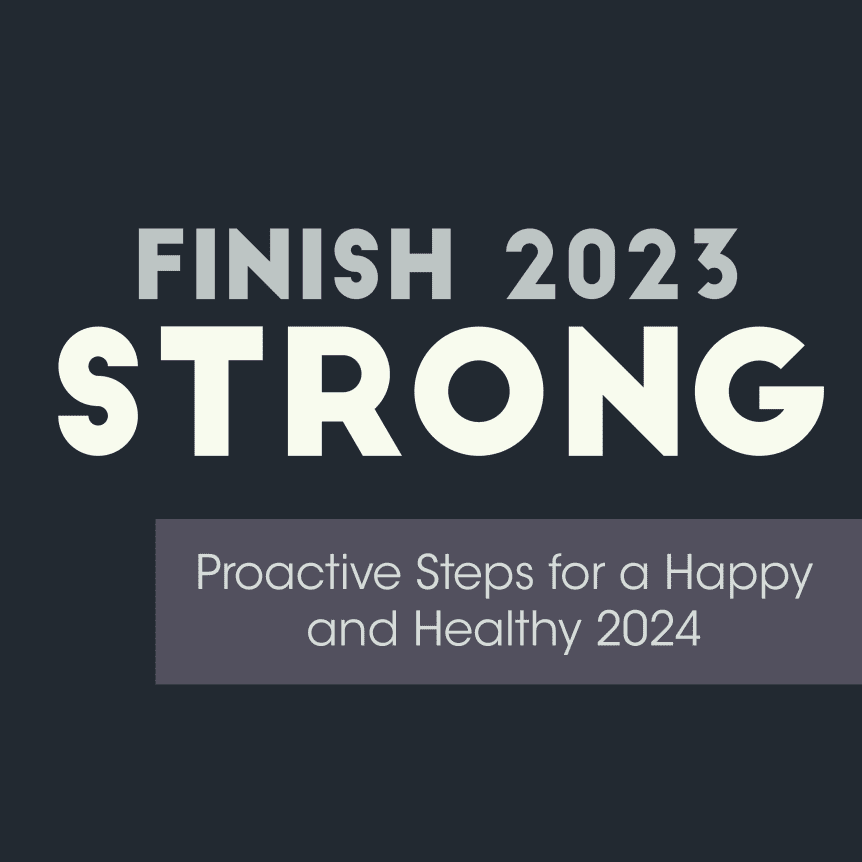The year’s end often brings reflection, not only on the moments we’ve cherished, but also on the steps we can take to ensure a healthier future. As a family medicine physician, I’ve observed that a little proactivity can go a long way, especially when it concerns our health.
In the hustle and bustle of modern life, and especially during holiday seasons, it is easy for self-care to become an afterthought and go on the backburner. We prioritize others and forget that to care for them, we first need to care for ourselves. Your Primary Care Provider (PCP) is an essential part of this self-care journey. Their role isn’t just about tending to illnesses; it is about total body wellness, both prevention and intervention.
Now, you might wonder, how often should you consult your PCP? While this can vary based on individual health needs, adults between 18-39 should generally see their PCP for a wellness exam every 1-2 years. Those aged 40 and older should aim for at least an annual check-up. Beyond these general rules, individuals with specific conditions like diabetes or hypertension might need more frequent visits.
It is worth noting that primary care is not about sporadic appointments; it is about establishing a long-term relationship with your PCP, which studies have shown can lead to better health outcomes. A consistent relationship with your PCP has been linked to a 19% lower chance of premature death compared to those who only see specialists. Furthermore, individuals with a dedicated PCP spend less time in the hospital and can save significantly on medical expenses over their lifetime.
Your PCP is more than a doctor; they are partners in your health journey. They understand the intricate tapestry of your medical history, lifestyle and current ailments, which allows them to detect potential health issues early on. Regular check-ins can be instrumental in catching conditions that are more manageable in their initial stages, such as breast cancer, prostate disease and colon cancer. Imagine your health as a garden; while it may seem tedious to tend to regularly, the blooms of wellness and vitality are worth every effort.
Remember to stay up to date on your vaccinations. Think of vaccinations as a frontline defense. These protective measures act as our body’s own superhero squad, keeping harmful illnesses at bay and safeguarding our community. However, the scope of care goes beyond just vaccinations. Eating healthily and incorporating a rainbow of fruits and vegetables in your diet is essential. Incorporating a variety of colorful fruits and veggies in your diet, like red bell peppers, green broccoli, yellow bananas and blueberries, is not just delightful to the eyes. Each hue offers unique nutrients that keep your body in tip-top shape, offering energy and vital vitamins. Similarly, exercise is so much more than weight loss or muscle tone; it is a celebration of what our bodies can achieve. Regular exercise, whether it is a brisk 10-minute walk, an impromptu dance session or even a stretch during your work break, can do wonders for your heart, lungs and overall mood and can contribute significantly to your overall well-being. Find an activity you love, and it will not even feel like a chore. And always remember, mental well-being is equally crucial. Setting aside moments for reflection, meditation or even a deep breath, can make a world of difference. And if ever the weight becomes too heavy, seeking support from loved ones or professionals is a sign of strength.
As we usher in a new year, let us remember the essence of life – cherishing moments with our loved ones. While a doctor’s appointment might not be your ideal holiday activity, think of it as an investment, ensuring that you have many more joyous moments ahead. It is within our power to make proactive choices for our health. It is not just about avoiding illnesses; it is about wholeheartedly embracing life in all its fullness. As 2023 winds down, commit to starting 2024 with your health as a priority, placing YOU first. Take a moment to schedule your next visit or reach out to a primary care provider. Your future self will thank you.
Written by:
Ammar Husan MD, MBA,
Assistant Professor,
Family Medicine
LSU Health Shreveport








